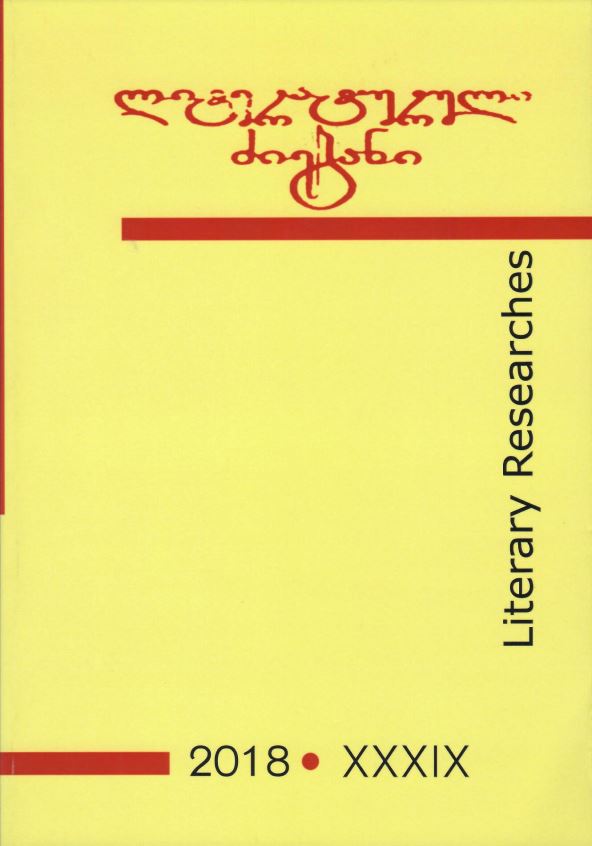Published 2018-12-20
Keywords
- Philosophical Fairy-Tale,
- French Literature,
- Michel Tournier
How to Cite
Abstract
A philosophical fairy– tale is a small creative-literary text, the artistic value of which lies in its allegoric, figurative criticism of the existing reality. The philosophical fairy-tale often having the satirical nature or didactic purpose is based on the fictional stories.
The philosophical fairy-tale may be reviewed as a version of the small narrations which has exhibited the primary trends of the art of writing and its peculiarities prevailed in the modern
literature. On the one hand, the philosophical fairy-tale is focused on the freedom of expression (that means the possibility of critical perception of the existing reality, which can be achieved by the partially ridiculous nature of the fairy-tale and at the same time – the originality of the plot and its uniqueness); On the other hand, the philosophical fairy-tale, as a small artistic-literary text, reveals the diversity of genres characteristic to the modern literature.
The small-sized allegorical text of the philosophical fairy-tale coexists with the trends of the French Literature of the twentieth and twenty– first centuries such as the aspiration for documentaries and the biographical or pseudo-biographical nature of the narrated stories. The same form of expressing the opinion implies the comprehensive and often more understandable perception of the literary writing.
The various types of philosophical fairy-tales may be considered as the essential, artistic form of expressing the philosophical idea or concept. The primary purpose of the philosophical fairy-tale premised on a single specific idea is the criticism of the existing reality and precisely with aim it was established in the eighteenth century (Volter, Jonathan Swift, Denis Diderot). In a manner of speaking, today a small – sized form of the artistic-literary texts has been dominated in the French Literature. Hence, the success of the philosophical fairy tale seems to be logical: Antoine de Saint-Exupery, Frédéric Lenoir, Maurice Druon, Matthieu Ricard, Alain Monnier, Eric– Emmanuel Schmitt …
Michel Tournier is well known among the lovers of the French literature, however, the Georgian society got known to his literary writings some time ago: two more translations were added to the Georgian translation space: Michel Tournier’s «Gaspar, Melchior and Balthazar» and «Friday or the Other Island».
Michel Tournier published the collection of his stories in 1978. It includes 14 texts. All the texts differ from each other: in some of them the literary form is indicated even in the pataract : the Christmas fairy tale, the fairy tale – initiation. Some of them belong to the sub-genre of the novelistic fairy– tale depicting the everyday life. The artistic-literary texts contained in the collection are diverse from each other according to the themes as well. In some of them there may be read the existence of hypotact (myth, folk or literary fairy tale); others are appealing to the readers due to the originality of their plot. However, all the texts show the writer’s distinct position on the moral, political, economic or religious aspects of the human life.

